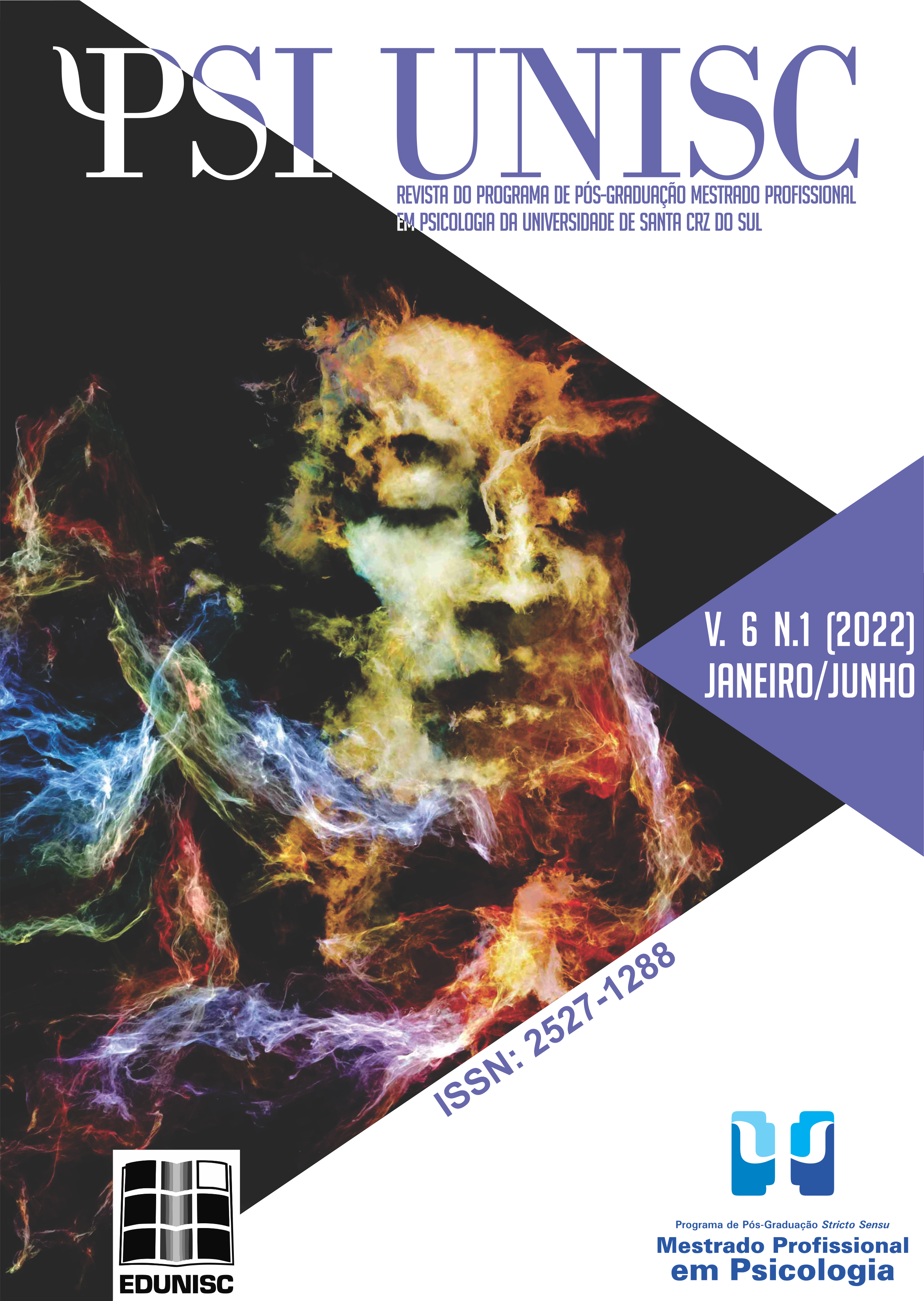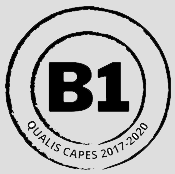Epistemology of oneself: Are we in cages?
DOI:
https://doi.org/10.17058/psiunisc.v6i1.15896Keywords:
Epistemology of oneself, Psychology class, Critical awarenessAbstract
This paper presents the conception of epistemology of oneself, understood as an identification of scientific assumptions that we hold internalized and our motivations. The task of epistemology of oneself is to objectify the subjectivity of oneself, bring to the level of consciousness what is within us as a paradigm and precept of truth. The method presents pedagogical resources used in a psychology class, through an action-emotion-word movement with the slogan “what is needed, first of all, to think outside the box?” The method of analysis is that of content analysis. What emerges from the students refers to an availability and interest of critical awareness. However, such an arrangement, in a today's classroom - that reminds us a 100-year-old classroom - doesn't become an act. The question arises if the current methods used by the educational sciences are responding to the challenges of society.
Downloads
References
Ardoino, J., & lourau, R. (2003). As Pedagogias Institucionais. São Carlos: RiMa. Bachelard, G. (1974). A filosofia do não. São Paulo: Abril Cultural.
Bachelard, G. (1994). O direito de sonhar. São Paulo: DIFEL.
Bachelard, G. (1997). A formação do espírito científico: contribuição para uma psicanálise do conhecimento. Rio de Janeiro: Contraponto.
Barbier, R. (1985). A pesquisa-ação na instituição educativa. Rio de Janeiro: Zahar.
Bardin, L. (2004). Análise de Conteúdo. Lisboa: Edições 70.
Basaglia, F. (1985). As Instituições da Violência. Rio de Janeiro: Graal.
Bateson, G. (2000). Steps to a ecology of mind: collected in anthropology, psychiatry, evolution, and epistemology. Chicago: University of Chicago Press.
Bauman, Z. (2009). Arte da vida. Rio de janeiro: Jorge Zahar Ed.
Denzin, N. K., & Lincoln, Y. S. (2006). O planejamento da pesquisa qualitativa: teoria e abordagens. Porto Alegre: Bookman.
Descartes, R. (2001). Discurso do método. São Paulo: Martins Fontes.
Deleuze, G. (2005). Foucault. São Paulo: Brasiliense.
Freire, P. (1993). Educação e mudança. Rio de Janeiro: Paz e Terra.
Freire, P. (1997). Linguagem culta e linguagem popular. In P. Freire, & P. Rivière, O processo educativo (pp. 55-57). Petrópolis, Vozes.
Han, B. (2015). Psicopolítica. Lisboa, Relógio D’Água Editores.
Hume, D. (2004). Investigações sobre o entendimento humano e sobre os princípios da moral. São Paulo: Editora Unesp.
Kantt, I. (2008). Crítica da Razão Pura. Lisboa: Fundação Calouste Gulbenkian. Kastrup, V. (2009). O funcionamento da atenção no trabalho do cartógrafo. In E. Passos, V. Kastrup, & L. Escóssia (Orgs.), Pistas do método da cartografia: pesquisaintervenção e produção de subjetividade (v. 1, pp. 32-51). Porto Alegre: Sulina.
Kuhn, T. S. (2007). A estrutura das revoluções científicas. São Paulo: Perspectiva. Lobrot, M. (1977). A favor ou contra a autoridade. Rio de Janeiro: Francisco Alves.
Lourau, R. A. (1975). Análise Institucional. Petrópolis: Vozes.
Lüdke, M., & André, M. E. D. A. (1996). Pesquisa em Educação Abordagens Qualitativas. São Paulo, EPU.
May, R. (2012). O homem à procura de si mesmo. Petrópolis: Vozes, 2012.
Meneghetti, F. K. (2011). O que é um ensaioteórico?. Revista de Administração Contemporânea, 15(2), 320-332. doi: 10.1590/S141565552011000200010
Morin, E. (1975). O Enigma do Homem. Rio de Janeiro: Zahar.
Nóvoa, A. (2014). Educação 2021: para uma história do futuro. Revista Educação, Sociedade & Culturas, (41), 171-185. Recuperado de https://www.fpce.up.pt/ciie/?q=publication/ revista-educa%C3%A7%C3%A3osociedadeculturas/edition/educa%C3%A7%C3%A3o-sociedade-culturas-41
Pongratz, L.A. (2008). Liberdade e disciplina: transformações na punição pedagógica. In A. Peters, (org.). Por que Foucault? Novas diretrizes para a pesquisa educacional (pp. 46-). Porto Alegre: Artmed.
Santos, B. de S. (2018). Os conceitos que nos faltam. Outras Palavras. Recuperado de https://outraspalavras.net/semcategoria/boaventura-os-conceitos-que-nosfaltam/
Thompson, J. B. (1995). Ideologia e cultura moderna: teoria social crítica na era dos meios de comunicação de massa. Rio de Janeiro: Vozes.
Triviños, A. (1987). Introdução à pesquisa em ciências sociais: a pesquisa qualitativa em educação. São Paulo: Atlas.
Downloads
Published
How to Cite
Issue
Section
License
The submission of originals to this journal implies the transfer, by the authors, of the printed and digital publication rights. The copyrights for the published articles are those of the author, with periodical rights on the first publication. Authors may only use the same results in other publications clearly indicating this journal as the medium of the original publication. Because we are an open access journal, we allow free use of articles in educational and scientific applications provided the source is cited under the Creative Commons CC-BY license.




